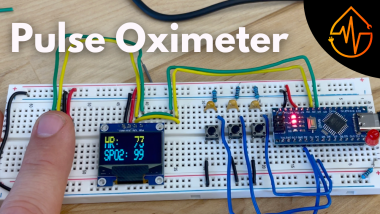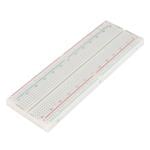Build A Diy Pulse Oximeter
About the project
In this project, you will learn how to build a working pulse oximeter using an Arduino Nano with the MAX30102 sensor module on a breadboard. This project is a great project to get started with learning how to use a breadboard, making electronic connections, and learning how to use arduino code.
Project info
Difficulty: Easy
Platforms: Arduino
Estimated time: 2 hours
License: GNU General Public License, version 3 or later (GPL3+)
Items used in this project
Hardware components
View all
Story
SP02 monitors, also known as pulse oximeters, are essential medical devices used to measure blood oxygen saturation levels and pulse rates non-invasively. They utilize a technique called pulse oximetry, which involves emitting light wavelengths through body tissues and detecting the absorption patterns to determine oxygen saturation levels.
SP02 monitors are widely employed in various medical settings, including hospitals, clinics, and home healthcare environments. They are commonly integrated into patient monitoring systems, respiratory therapy devices, and wearable fitness trackers to provide real-time health data.
For this project, we are going to build a pulse oximeter on a breadboard. The connections are pictured below and in the downloadable schematic.

If you need help learning how to use a breadboard, check out this video

































Leave your feedback...